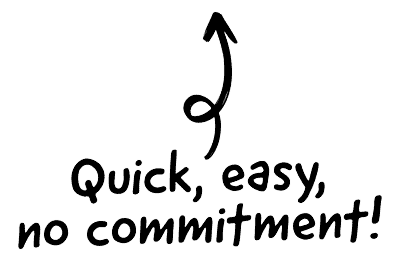PayU is a prominent global online payment service provider that specialises in offering services to merchants regardless of their size. With a strong presence in 50+ markets and supporting 450+ payment methods, it has emerged as an adaptable platform for businesses with an international focus. But how does it fare in comparison to other payment processing platforms? In this PayU review, we’ll explore PayU’s features, pricing, pros and cons, and consider whether it’s the right choice for your business.

Overview of PayU – what’s on offer?
Founded in 2002, PayU has grown to serve more than 2.3 million merchants worldwide, processing over 4.5 billion transactions annually. It boasts a secure payment gateway which is PCI-DSS compliant, indicating that it has met the highest security standards for payment processing. Its platform integrates with a range of e-commerce platforms, including WooCommerce, Magento, and Shopify, making it straightforward for businesses to embed PayU into their existing online operations.
PayU offers a range of services including, but not limited to, online payments, mobile payments, subscription billing, cross-border payments, and fraud prevention. It accepts multiple currencies, enabling businesses to sell internationally without concerns over currency conversion. With its strong fraud management system, PayU reduces risks associated with online transactions.
 Cutting edge payroll software
Cutting edge payroll software
- Powerful and easy to use
- HMRC & RTI compliant
- Used by payroll pros
 The CRM platform to grow your business
The CRM platform to grow your business
- Great for entrepreneurs
- Powerful data analytics
- Manage sales and data
 Powerful web builder and advanced business tools
Powerful web builder and advanced business tools
- Great for startups
- Powerful web page builder
- E-commerce available
 Supercharged content planning
Supercharged content planning
- Great for marketing
- Better than lists or sheets
- Manage social media
 Create a new website in 10 minutes. Easy.
Create a new website in 10 minutes. Easy.
- Launch your website fast
- Powerful data intuitive
- No coding skills needed
It’s also worth noting that PayU offers custom solutions tailored to specific industry needs, including travel, retail, digital goods, and more. These industry-specific solutions come with bespoke features and integrations to help streamline your business operations.
Pros and cons of PayU
Pros
- Wide range of payment options: PayU supports over 450 payment methods, making it easier for customers across the globe to make purchases.
- Fraud protection: With a robust fraud management system, PayU helps businesses mitigate risks associated with online transactions.
- Global reach: PayU operates in over 50 markets and accepts multiple currencies, making it an excellent choice for businesses with an international customer base.
- Integration with popular e-commerce platforms: PayU easily integrates with platforms like WooCommerce, Shopify, and Magento, allowing businesses to embed the payment gateway into their existing online operations seamlessly.
- Custom solutions: PayU offers tailored solutions for different industries, helping businesses meet their unique needs more effectively.
Cons
- Complex fee structure: PayU’s fee structure can be somewhat complex, especially for businesses operating in multiple markets. Some users have reported that it can be challenging to understand the costs associated with each transaction.
- Customer service: There have been some reports of slow response times from PayU’s customer service, which could be problematic for businesses needing immediate assistance.
- Delayed settlements: Some businesses have reported longer-than-average wait times for the settlement of funds.
PayU products and services guide
PayU provides a broad array of services that cater to businesses of all sizes. Some of its key offerings include:
Online payments
PayU’s payment gateway supports a multitude of payment methods, including credit/debit cards, digital wallets, and bank transfers. It’s PCI-DSS compliant, providing a secure environment for transaction processing.
Mobile payments
PayU provides mobile-optimised payment pages, making it convenient for customers to make purchases from their smartphones. It also offers in-app payments for businesses with mobile applications.
Subscription billing
For businesses that operate on a subscription model, PayU offers a comprehensive billing system that supports recurring payments and free trial periods.
Cross-border payments
PayU enables businesses to accept payments in various currencies, making it simpler to expand to international markets.
Fraud prevention
PayU employs a robust fraud management system to detect suspicious activity and mitigate the risks associated with online transactions.
PayU pricing, fees and charges explained
PayU’s pricing model varies by region, but it typically operates on a per-transaction basis. Its transaction fees depend on the payment method used, the market where the transaction is made, and the specific industry of the business. There are no setup fees or monthly charges, which is a plus for small businesses with limited budgets.
In India, for instance, the transaction fee is 2% for domestic credit cards, debit cards, net banking, and digital wallets. For international transactions, the fee is 3.5% + ₹7. This demonstrates the variation in fees based on geography and transaction type.
Since the pricing is not standard across all markets, it’s recommended to contact PayU directly for a more accurate estimation of costs based on your business’s specific requirements.
Alternatives to PayU
While PayU offers a robust platform for payment processing, there are alternative providers that might suit your needs better, depending on your business’s unique requirements.
PayPal: A globally recognised name in the online payments space, PayPal offers easy integration, a trusted brand name, and a simple fee structure. However, its transaction fees can be higher than other providers.
Stripe: Known for its developer-friendly offerings, Stripe provides a flexible, customisable platform for online and mobile payments. It supports over 135 currencies but is more suited to businesses with a strong technical team.
Worldpay: One of the leading payment processors in the UK, Worldpay offers a comprehensive suite of services, including online payments, POS systems, and fraud protection. It’s ideal for businesses of all sizes.
Conclusion – Is PayU a good choice?
So what is the verdict of our PayU review?
PayU provides a comprehensive and globally accessible payment processing service, making it an excellent option for businesses that operate in multiple markets. Its range of payment methods, integration with popular e-commerce platforms, and industry-specific solutions offer significant advantages.
However, its complex fee structure and potential issues with customer service are points to consider. If your business operates in a single market, or if simplicity and cost predictability are top priorities, alternative platforms like PayPal, Stripe, or Worldpay may be more suitable.
Ultimately, the right payment processor depends on your specific needs. It’s recommended to evaluate the features, pricing, and reviews of different providers before making a decision.
FAQ – PayU review
PayU supports over 450 payment methods, including credit and debit cards, bank transfers, and digital wallets.
Yes, PayU is PCI-DSS compliant, meaning it meets high security standards for payment processing.
Yes, PayU operates in over 50 markets and supports multiple currencies, making it suitable for businesses with an international customer base.
Yes, PayU integrates with popular e-commerce platforms like WooCommerce, Magento, and Shopify.
Yes, PayU offers tailored solutions for industries like retail, travel, and digital goods.
PayU typically charges a per-transaction fee, which varies based on the payment method, market, and industry of the business.
While PayU offers customer service, some users have reported slow response times.
PayU employs a robust fraud management system to detect suspicious activity and mitigate the risks associated with online transactions.
The settlement time can vary, but some businesses have reported longer-than-average wait times.
PayU offers more payment methods and supports more markets than PayPal, but its fee structure can be more complex. PayPal is known for its simple setup and fee structure.
While both offer a wide range of features, Stripe is more developer-focused, making it more customizable but potentially more complex to set up than PayU.
Worldpay is one of the leading payment processors in the UK, offering a wide range of services similar to PayU. The choice between the two often comes down to specific business needs and preferences.
PayU can be a good choice for small businesses, especially those with an international focus, due to its wide market coverage and no setup or monthly fees.
PayU’s ability to handle high volumes of transactions and its wide market coverage make it a good choice for large businesses.
Yes, PayU’s easy integration with popular e-commerce platforms and its wide range of payment options make it a good choice for e-commerce businesses.
PayU offers mobile-optimised payment pages and also supports in-app payments for businesses with mobile applications.
Yes, PayU offers a comprehensive subscription billing system that supports recurring payments.
Yes, PayU offers tailored solutions for the digital goods industry.
Yes, PayU supports multiple currencies, simplifying the process of selling to customers in different countries.
While PayU does disclose its pricing model, the actual costs can vary greatly depending on factors such as payment method, market, and industry of the business. Therefore, it’s best to contact PayU directly for a more accurate estimation of costs.

